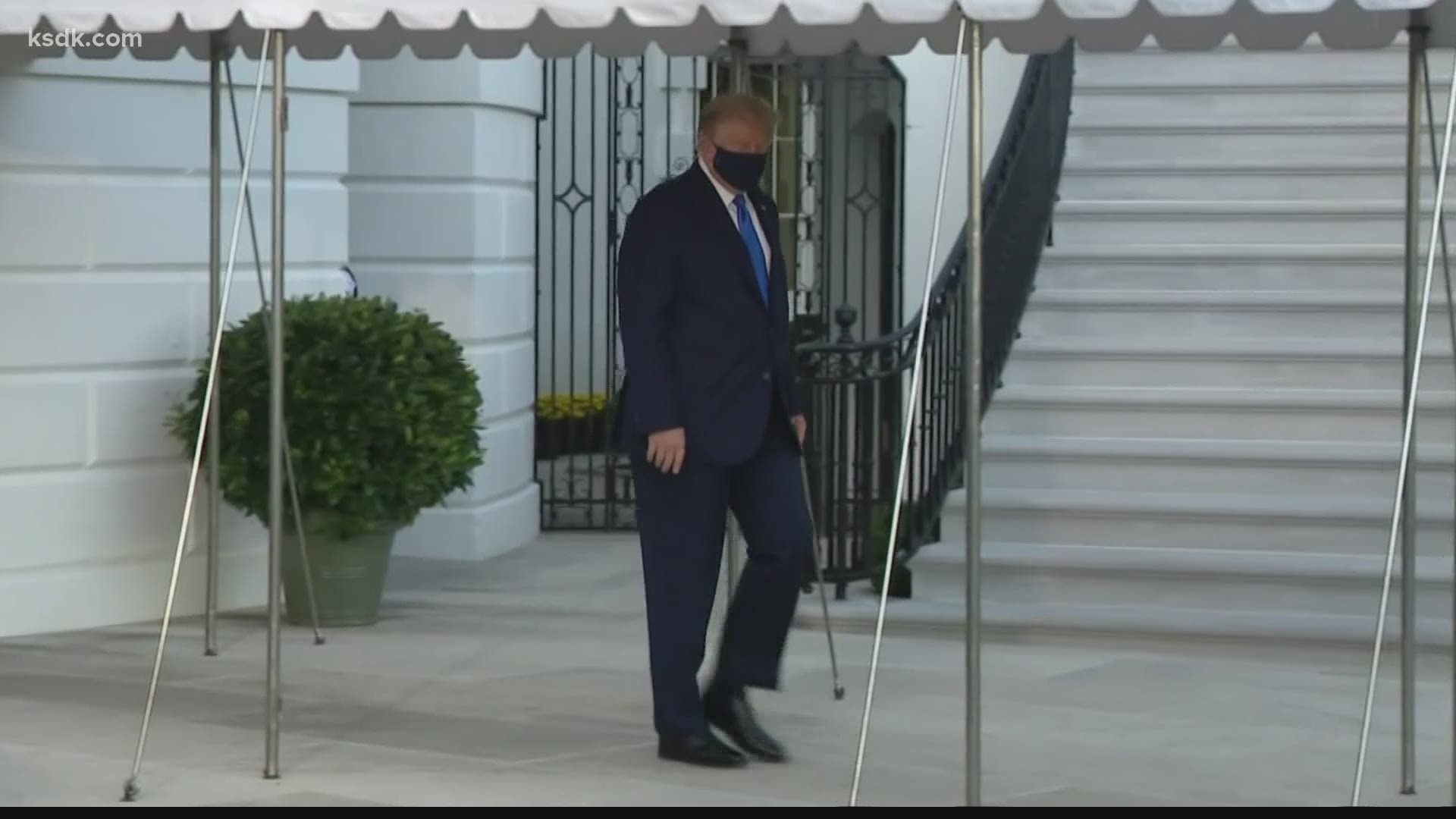ST. LOUIS — Leading the country while running a campaign, President Donald Trump is trying to do this, while fighting COVID-19.
Dr. Fred Buckhold, an Associate Professor of Internal Medicine at SLU says, even though the President has a job to do, he should be in isolation for 10 days from the onset of symptoms.
"Anywhere he is around with people he’s a risk, even with a mask," Dr. Buckhold said.
In order to get back on his campaign trail, his symptoms need to improve in that span.
From there, Washington University's Critical Care Doctor Tiffany Osborn said he needs to have 24 hours without a fever without any medication like Tylenol to alter the fever.
Isolation is important in order to prevent others from getting the virus. And that 10 day period is crucial.
"We think you still have live virus in your system for 10 days," Dr. Osborn said.
That's why Dr. Buckhold says it was risky for the President to be in a car with others on Sunday to drive by supporters.
"From what I understand the circulation is all interior to prevent chemical exposure. You’re basically circulating that same air again and again. It can certainly put them at risk," Dr. Buckhold added.
He explained that duration and proximity are two factors to focus on when it comes to transmission.
If President Trump is clear from isolation, doctors say he should still wear a mask, after beating COVID-19.
"With a mask, you are reducing that number of virus circulating in the air. I think being a little more cautious particularly especially if your livelihood is a stake or the livelihood of others is at stake," Dr. Buckhold added.
Dr. Osborn says it's possible to get COVID-19 again, but there is so much unknown that they don't know if it's probable.
You may think, well he has the antibodies. But how long does the immunity last? Dr. Buckhold says, that's unknown.
"Generally when we see somebody have antibodies to any type of virus, it generally means that they are probably protected at least for a short term for getting the infection again," Dr. Buckhold adds. "Does this last a week? A month? A year?"
He says they'll learn more once the vaccines come out.
That's why physicians urge everyone, even the president, to do everything they can, to continue reducing transmission.

